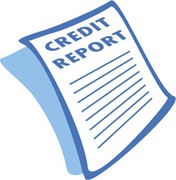 There is a lot of mystery surrounding credit reports and the scores that are generated from the report. I think that bankers and other financial providers try to keep the truth a mystery to aid in their power trip when people come to apply for a loan. Why is it that most people find themselves feeling like they are headed to see wizard of Oz when they go to see the banker for a loan? The truth is that most loan officers are blowing smoke and using your misconceptions to leverage their salesmanship. Let’s pull the curtain back and give you some insight to what really makes up a credit report.
There is a lot of mystery surrounding credit reports and the scores that are generated from the report. I think that bankers and other financial providers try to keep the truth a mystery to aid in their power trip when people come to apply for a loan. Why is it that most people find themselves feeling like they are headed to see wizard of Oz when they go to see the banker for a loan? The truth is that most loan officers are blowing smoke and using your misconceptions to leverage their salesmanship. Let’s pull the curtain back and give you some insight to what really makes up a credit report.
The REAL free credit report link www.annualcreditreport.com
First things first, if you want to see your report the only real free web site that is sponsored by the government is listed above. You are entitled to view your report annually for free – SO GO DO IT!
There are three credit bureau’s that gather data and generate reports. They are:
Trans Union, Equifax and Experian
Essentially these agencies are gathering the same data but to maintain accuracy and to avoid potential conflicts that could arrise from one entity, there are three companies. You can pull your report from each one of the agencies annually for free. So if you are considering paying a third party entity to monitor your credit and send you reports every month, don’t do it any more. You can pull a report once every 4 months for free your self! Pull the Trans Union report in January, the Equifax report in April and the Experian report in August. Boom! You just saved a bundle of money and achieved the same thing that those “experts” are providing.
What makes up the report?
A credit report is made up of data that lenders report. If you have an open line of credit, installment loan, charge card (those in-store cards you can only use at that store), credit card, mortgage or student loan it is on your report. It also might include negative information such as judgments from the court, items sent to collections and accounts that are charged off by the lender.
What is not included on the report?
Accounts at your daily service providers are not included on your credit report unless they extend you credit or they have to send your account to a collection agency. Often people think that their insurance company, cell phone provider and utility services are listed on their report. They are not.
What is the difference between a credit score and a credit report?
Your credit score is an artifact of the information listed in the  credit report. The credit score is calculated using a secret algorithm that is proprietary to a company called Fair Isaac, also known as FICO. We do know some basics of what goes into the calculation. By and large the most important thing to do is pay all credit obligations on time over many years. Different credit providers are given more weighting in the calculation depending on their importance in repayment. For example, a long on-time payment history on a mortgage is given more weight than good history with a charge card. Likewise, a late payment on a mortgage will hurt your score more than a late payment on a charge card. The amount of credit out standing relative to the limit of the account is also a factor. A rule of thumb is: Never use more than 30% of the max amount of an account to maintain the best score.
credit report. The credit score is calculated using a secret algorithm that is proprietary to a company called Fair Isaac, also known as FICO. We do know some basics of what goes into the calculation. By and large the most important thing to do is pay all credit obligations on time over many years. Different credit providers are given more weighting in the calculation depending on their importance in repayment. For example, a long on-time payment history on a mortgage is given more weight than good history with a charge card. Likewise, a late payment on a mortgage will hurt your score more than a late payment on a charge card. The amount of credit out standing relative to the limit of the account is also a factor. A rule of thumb is: Never use more than 30% of the max amount of an account to maintain the best score.
In the past, it did hurt your score to have multiple inquires for credit in a short amount of time. This really put a damper on folks being able to shop around for the best loan. Legislation several years ago changed this rule and now allows for consumers to apply to multiple lenders in a two week period when shopping for a mortgage or an auto loan and it only counts as one inquiry. Always compare lenders just like you would any other product!
There are many nuances to credit reports, too many to cover in one article! If you have specific questions or want more information, please feel free to contact me. A good understanding or credit reports will liberate you and help you maintain a better score. A good credit score is essential to succeed in your savings pilgrimage.






